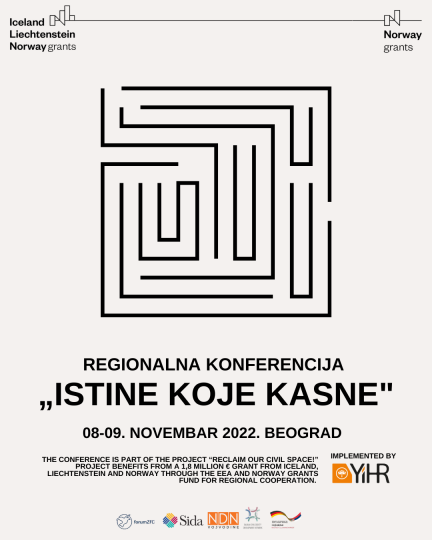
At the "Truths that are denied" conference we will discuss the challenges that post-conflict societies face, stable peacebuilding, as well as reconciliation processes in the region. In addition, we will also discuss memorialization, regional cooperation, as well as the shrinking space for civil society.
While in Europe another war unfolds before our eyes, and while we watch how the aggression of one country takes lives and threatens the future of entire generations, we cannot help but think about our past experience, our region, and our future. The importance of dealing with the past, new initiatives and alliances, as well as opposing every form of nationalism, ethnocentrism, violence, and discrimination are becoming key factors that will determine the direction in which the region we live in will move.
Post-conflict areas are faced with numerous challenges on the way to building stable peace and a society based on democratic values and principles, especially in the circumstances in which the world and Europe find themselves today. The process of peacebuilding is never a straight line and is often slowed down by nationalistic narratives and actions coming from key political actors, media, and extremist groups. Therefore, the idea of the two-day conference "Truths that are denied" is a conversation about the truths that we need, but also about the truths that hold us back, and which are forcefully thrown out of the public space, the media, and dominant policies.
At the conference, at four panels, "Images in our heads and on the walls" "Creating the enemy: every day a new war" "Memorialization in the new social reality" and "Is there a shortcut to peace" we will discuss the role of art and the media in the nationalistic narratives (de)construction, civic involvement in the processes of building stable peace and democratization, the memorialization and new memorialization practices, as well as the possibilities of reaching a stable peace in the socio-political situation in which we live. Furthermore, some of the questions we would try to answer are how can we encourage citizens to get involved in peacebuilding and democratization processes, how can we help stop a shrinking civil space phenomenon, and, finally, how can we strengthen the vital work of the human rights-oriented CSOs working across Europe?












